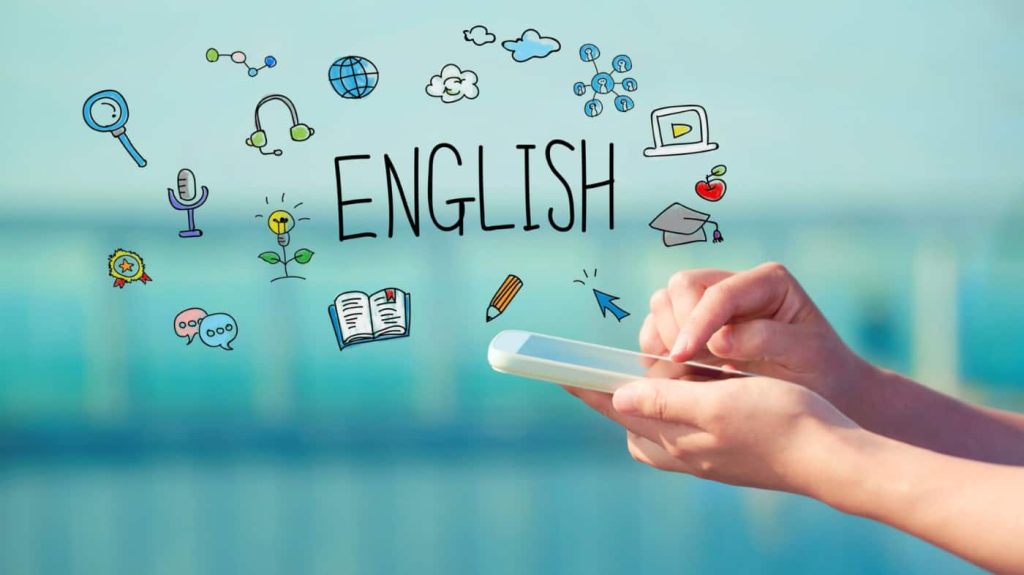In today's globalized world, English has established itself as the lingua franca in many industries, from business to entertainment. Thus, learning this language became not just a differential, but a necessity. Fortunately, technology has come to the aid of English learners of all ages and skill levels. Apps for learning English are versatile tools that offer everything from basic lessons to complex conversation practice.
Furthermore, these applications are designed to adapt to the pace and learning style of each user. With intuitive interfaces and interactive features, they make learning English a more engaging and effective experience. Therefore, whether on a daily commute or in the comfort of home, learning English has become more accessible and practical with the use of these digital tools.
Choose the Right App for You
When selecting an app to learn English, it is essential to consider your learning goals and personal preferences. Some apps focus on vocabulary, others on grammar, while some provide a holistic approach that includes speaking, listening, reading and writing.
Duolingo
One of the most popular language learning apps is Duolingo. Its gamified approach makes learning fun and addictive. With a variety of lessons covering grammar, vocabulary, and pronunciation, Duolingo allows users to progress at their own pace. Furthermore, its rewards system with points and levels motivates students to remain constantly engaged with learning.
Another strong point of Duolingo is its community. Users can compete with friends and people around the world, which encourages regular practice. The interactivity and social aspect of the application are great attractions for those looking for a stimulating way to learn English.
Babbel
Babbel is an excellent option for those who want more structured learning. Unlike Duolingo, Babbel offers specific courses based on different skill levels and goals. Each course is made up of short lessons that focus on everyday conversations, preparing students for real-life situations.
Furthermore, Babbel also has voice recognition technology, which helps users improve their pronunciation effectively. This feature is particularly useful for those who need to improve their speaking skills and better understand the nuances of English.
Memrise
Memrise stands out for its unique method that uses mnemonic memories to help with vocabulary retention. The app uses videos of native speakers to teach words and phrases in context, which is crucial for understanding how the language is used naturally.
Additionally, Memrise also offers courses created by other users, which means there is a huge variety of lessons available, covering very specific topics or even local slang. This community aspect also encourages users to contribute and learn from each other.
HelloTalk
HelloTalk is an application aimed at practicing speaking and writing. It connects English learners with native speakers around the world, allowing both sides to learn from each other through text chats, voice and even video calls. It is an excellent tool for those looking to practice the language in a more practical and social setting.
HelloTalk also includes correction tools that allow users to correct each other's messages, providing valuable feedback and collaborative learning.
Rosetta Stone
Rosetta Stone is one of the oldest and most renowned apps on the language learning market. It utilizes full language immersion, meaning all instructions and responses are given in English. This forces the user to think and learn in the target language from the beginning, which can speed up the language acquisition process.
The app also uses speech recognition technology to help with pronunciation, ensuring users not only understand English but can also express themselves clearly and confidently.

Important Features in Language Apps
When choosing an app to learn English, it is crucial to consider several features that can optimize the learning process. The integration of voice recognition technologies, for example, is essential for those who want to improve their pronunciation. Additionally, features like customizable and adaptive lessons help keep content relevant and challenging for the user.
Personalized Learning Features to Improve English Fluency
One of the great advantages of apps to learn English on your cell phone is the personalization of the learning process, which adapts to the pace and needs of each user. With the help of artificial intelligence, many of these apps create individualized study plans that help improve fluency efficiently. Let’s explore how these personalization features can optimize English learning and make the process more dynamic.
Personalized Study Plans with Artificial Intelligence
Applications like Duolingo, Babbel, and Busuu use algorithms artificial intelligence (AI) to create personalized study plans based on each user’s performance and goals. AI analyzes how the student is progressing in different areas, such as grammar, vocabulary, listening, and speaking, and adjusts lessons accordingly. This ensures that the user is always challenged, but without feeling overwhelmed.
This personalization is especially useful for those seeking faster fluency or for those who need to focus on specific areas, such as speaking or writing. With these tools, learning becomes more efficient, as the content is adapted to each student's skill level and goals.
Spatial Repetition Exercises for Vocabulary Retention
Another important feature available in apps like Memrise and the Anki is the use of spaced repetition, a proven learning technique that helps you retain new words and concepts for longer. These apps track how much you’re learning and how often you practice, presenting strategic reviews of words or phrases at optimized intervals.
This ensures that the user consolidates vocabulary more effectively, without having to review the same lessons over and over again. By focusing on the words that you have the most difficulty remembering, the apps help to optimize the memorization process, making it easier to progress towards fluency.
FAQ
Question: What is the best app for learning English? Response: The best app depends on your specific needs, but Duolingo and Babbel are highly recommended for their interactive and structured approach, respectively.
Question: Do I need to pay to use these apps? Response: Many apps offer limited free content, with subscription options that unlock additional features.
Question: Is it possible to learn English just using an app? Response: Although apps are useful tools, they are most effective when used as part of a more comprehensive approach that includes real practice and formal study.
Question: How do apps keep users motivated? Response: Many apps use gamification, competitions, and reward systems to keep users engaged and motivated.
Conclusion
With technology constantly evolving, English learning apps have become more sophisticated and accessible. They offer a wide range of methods and resources that can be customized to meet individual needs, making learning a personal and rewarding journey. Whether you are starting out or already have advanced knowledge, there is certainly an application that can help with your continued development in English.



